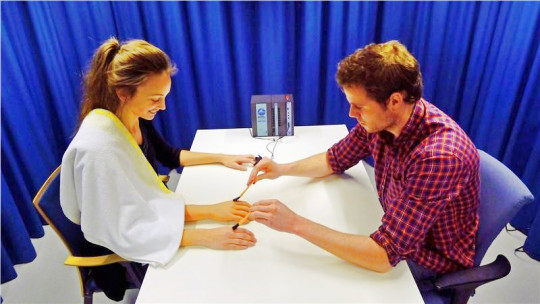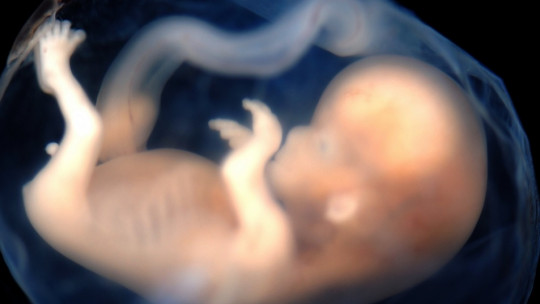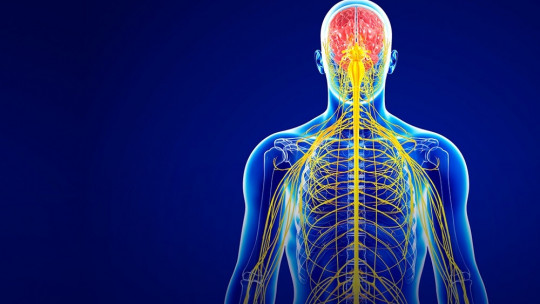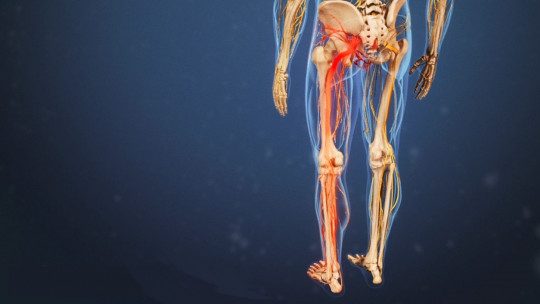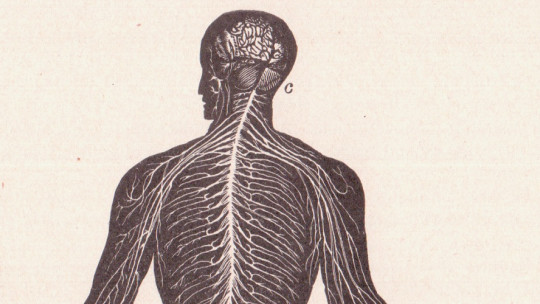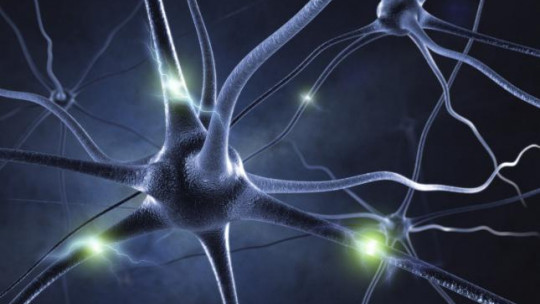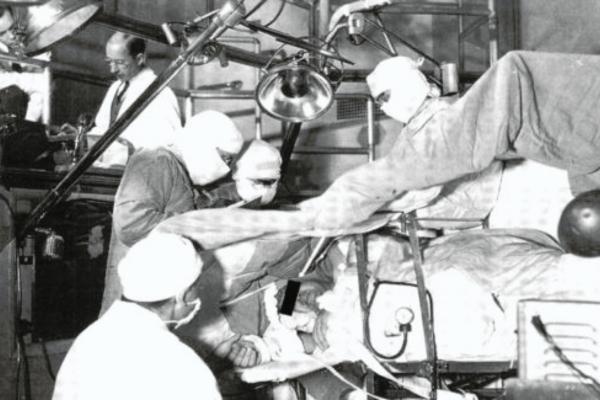At PsychologyFor we want to talk to you about a disease that is as interesting as it is uncommon. So much so that there is one case for every million people: insensitivity to pain. What is the d thatappearance of pain sensitivity? Why happens?
Those who suffer from it do so from birth and do not feel physical pain in any part of their body, not even when they are injured or suffer serious accidents. But not everything is good news: the emotional pain remains intact in these cases.
Would you like to not feel pain when you fall or get burned? Don’t respond until you read the article, because insensitivity to pain can be poisoned candy. This disease has caused terror for many years. Keep reading and we will tell you what it is and why this strange condition of not feeling physical pain occurs.
What is insensitivity to pain
The insensitivity to pain also called congenital analgesia, is a condition that occurs from birth. Who suffers from it does not feel physical pain not even when you break a bone or suffer a serious injury. As for temperature, if there is no significant alteration, they can perfectly differentiate between cold or heat and yet they are unable to notice when something is too hot and burns them, with the danger that this entails.
From a superficial point of view, it might seem that congenital analgesia is a blessing, because who wouldn’t want not to feel a toothache or the pain of a fracture? It’s like it’s a superpower that we all wish we had. But, behind this fantasy, there are many serious dangers.
Consequences of insensitivity to pain
Taking into account that pain is a response of our body to something that harms us and, in general, a warning sign that something is wrong, what happens when there is no pain? Well, we have no way of knowing that we are in danger.
Therefore, a person who does not feel pain does not know that he has suffered a serious injury, that he has bitten his tongue while chewing, that he has an infection in his tooth, or that the tea burns when he takes a sip. And this is what usually happens in patients with this condition. On the one hand, they are more likely to suffer accidents And on the other hand, they may be seriously injured and not realize it. In fact, life expectancy is very low in these cases for that reason.
And the thing doesn’t stop there. Until now we have talked about young people or adults who do not notice when something hurts them. From a certain age, this can be compensated by taking extreme precautions, being informed or having frequent medical examinations. But, the greatest danger is in babies A baby already has difficulty communicating that something is bothering or hurting her until she starts talking, but if he is not in pain because he has congenital analgesia, it is practically impossible to know that something is causing damage to her body. So much so that there are many cases in which children have wounds on their tongue or hands when their teeth begin to emerge.

Symptoms of insensitivity to pain
Insensitivity to pain is difficult to detect until uncomplaining wounds accumulate. The most difficult thing in this case is the diagnosis of a baby or child. However, there are some symptoms that can alert us to this unusual condition:
- Loss of smell in some cases.
- Absence of pain to stimuli that usually produce it.
- Wounds, bruises, breaks of frequent bones.
- Mouth wounds or on the tongue due to burns or bites.
- Injuries caused by their own bites in children (fingers, hands, mouth).
Until now there is no official protocol for diagnosis, but if there are suspicions of the presence of congenital analgesia, a professional will take a detailed history of the patient that includes everything related to wounds and injuries. A physical examination to check, on the one hand, the insensitivity to pain and, on the other hand, the severity of the wounds or injuries that may occur at that moment. A skin biopsy and a genetic test to check for mutations in genes that may be affected.
Why are there people who don’t feel pain?
What is the cause of the disappearance of pain sensitivity? As has been proven, in this disease of not feeling pain, there are mutations in several genes. In most cases, the cause of congenital insensitivity to pain is mutations in the SCN9A gene or the NTRK1 gene In some cases the mutations occur in the PRDM12 gene In rare cases, the disease can be caused by mutations in the CLTCL1 gene in it NGF gene or in the SCN11A gene
Insensitivity to pain affects the part of our body related to touch, pain and smell. That is why those who suffer from it, in addition to not feeling pain, may see their sense of smell and temperature perception altered in some cases. The production of sweat or tears may also be altered.
Is not feeling pain an illness?
Indeed, insensitivity to pain is considered a disease in that it is “a alteration of functioning “normal of an organism or of some of its parts.” It is part of a group of diseases called hereditary sensory and autonomic neuropathies
Although it is considered a disease, there is no specific treatment to alleviate or reverse it and feel pain. Treatment then focuses on the symptoms (the wounds the patient suffers) and the prevention Of these, paying special attention to:
- Tooth care: prevent cavities, good oral hygiene, soften the edges and extraction in some cases.
- Eye care: especially if the ability to produce tears is affected.
- Skin care: hydration, infection prevention, wound disinfection.
This article is merely informative, at PsychologyFor we do not have the power to make a diagnosis or recommend a treatment. We invite you to go to a psychologist to treat your particular case.
If you want to read more articles similar to Disappearance of pain sensitivity: what it is and why it happens we recommend that you enter our Neurosciences category.

